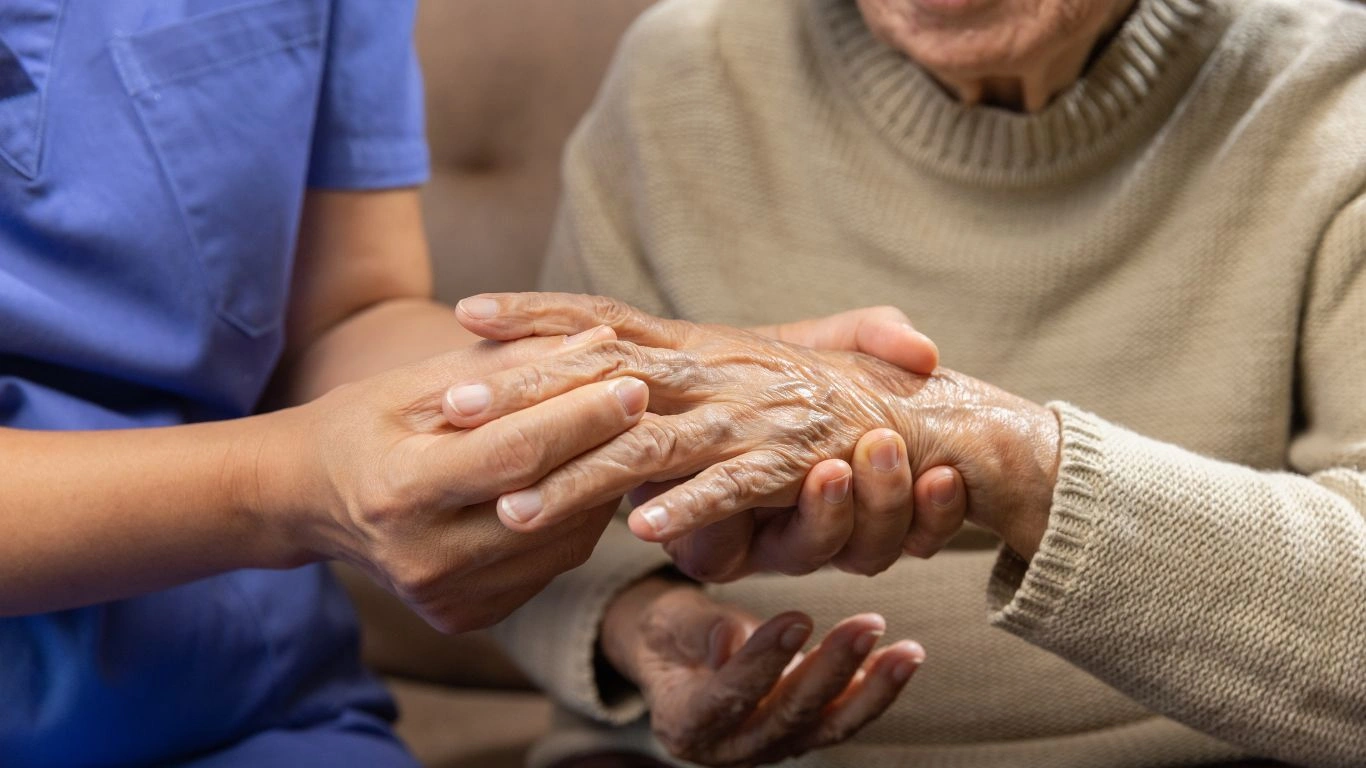Best Tips to Reduce Morning Hand Stiffness from Rheumatoid Arthritis
As a Rheumatology Nurse Practitioner, I’ve spent years helping people manage chronic conditions like rheumatoid arthritis (RA). One of the most common complaints I hear from patients is the morning hand stiffness they experience. If you’re someone who’s struggling with this too, you’re not alone. It can be incredibly frustrating to wake up in the morning feeling like your hands are locked up, stiff, and painful. But don’t worry, there are ways to reduce morning hand stiffness associated with RA, and today, I’m sharing some of my personal tips and strategies with you. Let’s dive into the details on how to make those mornings a little easier.
Understanding Rheumatoid Arthritis and Morning Stiffness
Rheumatoid arthritis (RA) is an autoimmune disease where the immune system mistakenly attacks the body’s joints, causing inflammation, pain, and stiffness. It’s most commonly seen in the hands, wrists, and knees, but it can affect other joints too. One of the hallmark symptoms of RA is morning stiffness, especially in the hands. You may wake up and feel like you can’t open your hands fully, or like your fingers are swollen and tight. This stiffness can last anywhere from a few minutes to several hours, and for some, it can be debilitating. But why does this happen?
The Science Behind Morning Hand Stiffness
In RA, inflammation occurs in the synovial membrane, which is the lining of the joints. When this membrane becomes inflamed, it thickens, causing a reduction in the joint’s range of motion. This inflammation is often at its peak after periods of rest, like when you’re sleeping. The body tends to produce more inflammatory proteins while you sleep, which is why many people with RA experience worse symptoms in the morning. It’s also why morning stiffness can be particularly intense after a night of sleep.
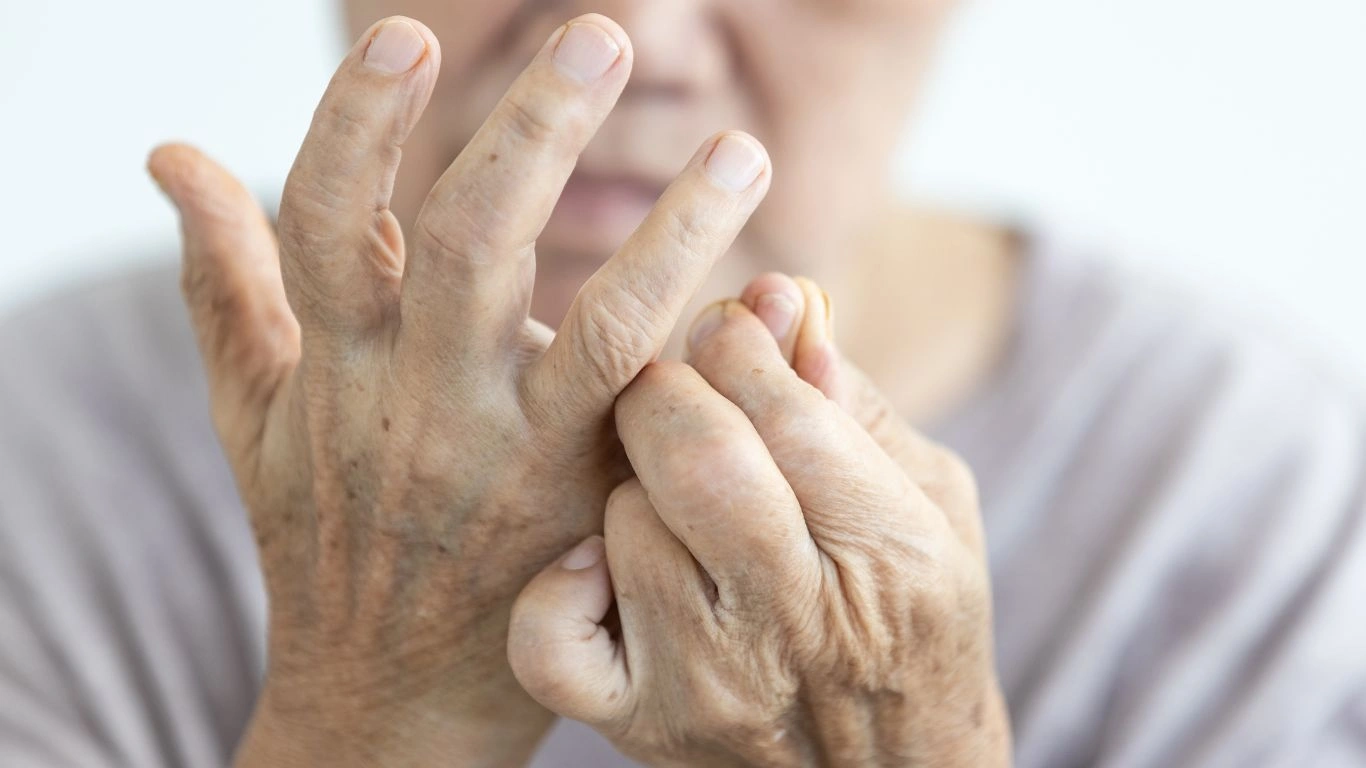
Simple Ways to Reduce Morning Hand Stiffness
Now that we understand why morning stiffness occurs, let’s talk about how to reduce it. With a few lifestyle changes and some strategic approaches, you can manage your symptoms more effectively and start your day with less discomfort. I’ve worked with countless patients over the years, and the following tips have helped many of them find relief.
1. Start with a Warm Compress
One of the easiest ways to loosen up your hands in the morning is by applying a warm compress. You can use a heating pad or even a warm towel to gently heat your hands and wrists. The warmth increases blood flow to the area, helping to reduce stiffness and improve flexibility. Make sure the compress is not too hot, as you don’t want to burn your skin. Apply it for about 10-15 minutes before you get out of bed, and you’ll likely notice a big difference in how your hands feel.
2. Morning Stretching: Gentle and Effective
Stretching your hands in the morning may seem like a simple thing, but it can do wonders for your joint mobility. I always recommend starting with some gentle stretches to help your hands regain flexibility after a long night of rest. You don’t need to overdo it—just some simple exercises like making a fist and then slowly opening your hand can go a long way. Another effective stretch is to hold your hands palm-up and gently bend your fingers back, but be careful not to push too hard. Stretching helps increase circulation and prepares your joints for the day ahead.
3. Keep Your Hands Warm Overnight
Another helpful tip I always share with my patients is to keep their hands warm while they sleep. One of the most effective ways to prevent stiffness in the morning is to wear soft, cotton gloves to bed. Some people also use heated gloves that are specially designed for RA sufferers. Keeping your hands warm throughout the night can prevent that “lock-up” feeling when you first wake up. It’s a simple solution that can have a huge impact on your morning routine.

4. The Importance of Sleep and Rest
Good rest is essential for anyone dealing with RA, especially when it comes to reducing morning stiffness. While you sleep, your body is working to repair itself, and it’s vital that you give your joints the proper rest they need to heal. That said, getting enough quality sleep is key. It can also be helpful to try sleeping in positions that don’t put extra pressure on your hands. Avoid curling up into a tight ball, as this can exacerbate joint stiffness. Make sure to elevate your hands slightly with a pillow to avoid swelling.
Diet and Anti-Inflammatory Foods
Your diet plays a significant role in managing rheumatoid arthritis symptoms, including morning hand stiffness. Certain foods have anti-inflammatory properties that can help reduce inflammation in your joints. A diet rich in fruits, vegetables, and omega-3 fatty acids can be a game-changer for RA patients. Foods like salmon, walnuts, and chia seeds are excellent sources of omega-3s, which have been shown to reduce inflammation.
What to Eat and What to Avoid
- Eat: Fatty fish (salmon, sardines), leafy greens, berries, olive oil, nuts.
- Avoid: Processed foods, red meat, sugar, and excess dairy, as they can promote inflammation.

5. Consider Supplements
In addition to a healthy diet, some supplements may help reduce inflammation and improve joint health. Fish oil supplements, glucosamine, and turmeric are popular among RA patients. While there’s no magic pill for rheumatoid arthritis, these supplements have shown promise in helping manage symptoms. Always consult with your healthcare provider before adding any supplements to your routine to ensure they’re safe for you.
Medications to Help Manage Morning Stiffness
When it comes to managing rheumatoid arthritis (RA) and reducing morning hand stiffness, medications play an essential role. While lifestyle changes can help alleviate symptoms, there are times when medication is necessary to get a handle on inflammation and pain. As a Rheumatology Nurse Practitioner, I’ve worked with countless patients who’ve found relief with a tailored medication regimen. Let’s dive into the different classes of drugs that can help you manage RA and its symptoms, especially those frustrating mornings.
Non-Steroidal Anti-Inflammatory Drugs (NSAIDs)
NSAIDs are a common go-to for many RA patients. These drugs help reduce inflammation and pain, which is critical when dealing with morning stiffness. They work by blocking the enzymes that produce inflammatory substances in your body. Over-the-counter options like ibuprofen and naproxen can be helpful, but your doctor may also prescribe stronger NSAIDs for more severe pain.
However, while NSAIDs are effective for short-term pain relief, they aren’t a long-term solution to RA. They don’t stop the disease’s progression, and overuse can lead to side effects like stomach irritation or kidney issues. It’s always best to use them sparingly and as part of a more comprehensive treatment plan that includes other medications.
Disease-Modifying Anti-Rheumatic Drugs (DMARDs)
If you’re looking for a more long-term solution to RA symptoms, including morning stiffness, Disease-Modifying Anti-Rheumatic Drugs (DMARDs) may be a crucial part of your treatment. These medications don’t just mask symptoms—they target the underlying immune system problem that’s causing inflammation. DMARDs can help slow the disease’s progression, reduce joint damage, and relieve symptoms like stiffness.
There are two main types of DMARDs: traditional and biologic. Traditional DMARDs, like methotrexate, have been used for decades and can effectively manage RA symptoms. Biologic DMARDs, on the other hand, are newer and target specific parts of the immune system. Drugs like Humira or Enbrel fall under this category and are often prescribed to patients whose RA doesn’t respond well to traditional DMARDs.
DMARDs can be incredibly effective, but they come with potential side effects, such as an increased risk of infections or liver damage. Close monitoring by your doctor is essential while on these medications to ensure they’re working properly and safely.
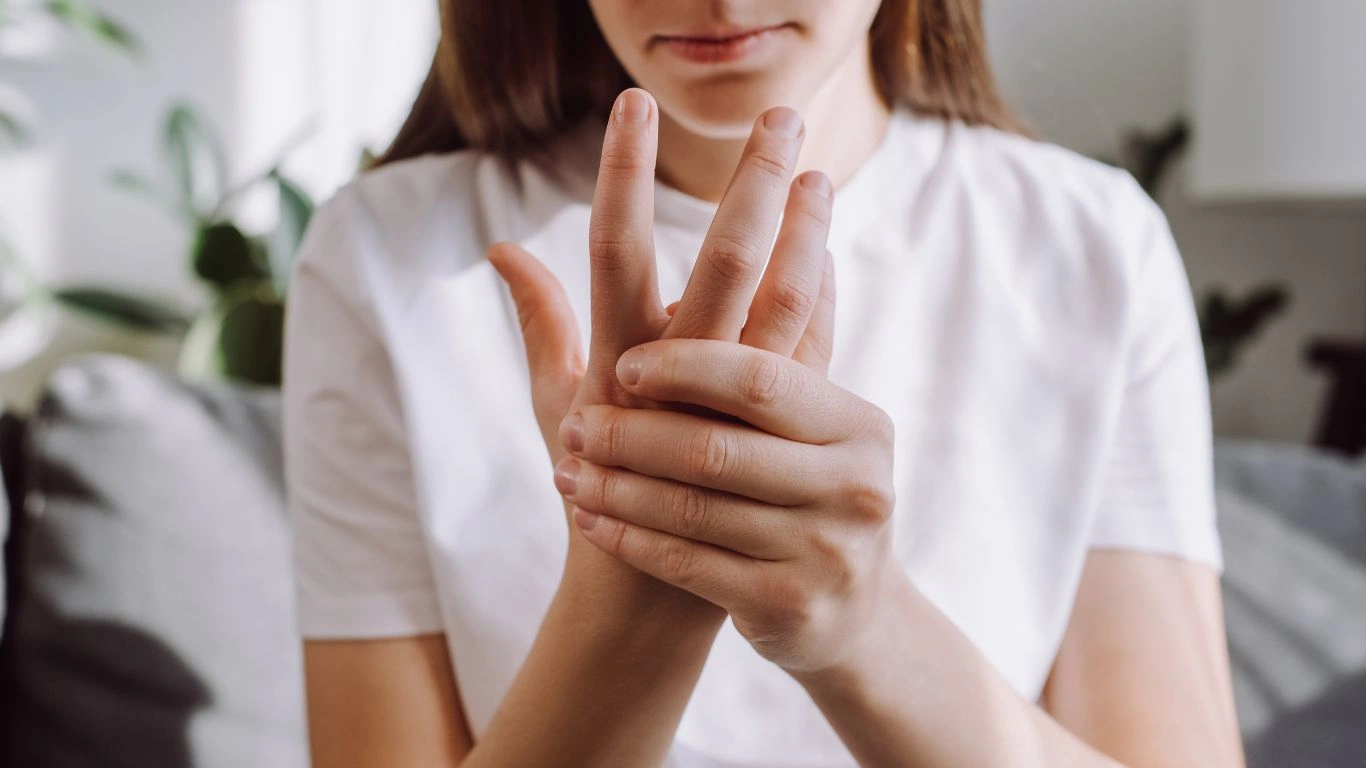
Corticosteroids for Acute Flare-Ups
For those moments when RA symptoms flare up, corticosteroids can be a game-changer. These powerful anti-inflammatory drugs are often used in short bursts to quickly reduce swelling and relieve pain. Prednisone is the most commonly prescribed corticosteroid for RA patients. It can help alleviate the severe stiffness and swelling that can accompany a flare-up, providing temporary relief until other medications take effect.
While corticosteroids work quickly, they are not ideal for long-term use because of the potential for significant side effects, such as weight gain, osteoporosis, or high blood pressure. For that reason, your doctor will usually prescribe them in low doses or for short periods only.
Physical Therapy and Occupational Therapy
Alongside medications, physical therapy (PT) and occupational therapy (OT) are crucial components of an RA management plan, especially when it comes to improving joint function and reducing stiffness. Many of my patients have found that working with a skilled PT or OT professional helps them regain strength and mobility, especially in the hands and wrists.
Physical Therapy: Moving Through the Stiffness
Physical therapy focuses on improving joint mobility, increasing strength, and reducing pain through targeted exercises. For hand stiffness, a physical therapist can guide you through specific stretches and strengthening exercises designed to loosen tight joints and improve flexibility. Some common exercises might include gentle stretches for the fingers and wrists or using resistance bands to build strength in the hand muscles.
Physical therapy isn’t just about exercising; it’s about learning how to move your joints properly to prevent further damage. By working with a therapist, you can develop a routine that supports your joints while easing the discomfort of morning stiffness. Regular physical activity is also an excellent way to maintain overall health and reduce the frequency and severity of flare-ups.
Occupational Therapy: Protecting Your Hands
Occupational therapy is another valuable resource for people with rheumatoid arthritis. An OT specializes in helping you adapt your daily tasks to reduce strain on your joints and prevent further damage. This can be incredibly beneficial if morning hand stiffness makes simple activities like brushing your teeth, holding a pen, or typing at work difficult.
Occupational therapists can recommend tools like splints, braces, or adaptive devices to make tasks easier. For example, a specially designed splint worn at night can help keep your fingers in a more functional position, reducing stiffness and preventing deformities in the long run. Occupational therapy focuses on helping you maintain your independence and quality of life while minimizing pain and injury.
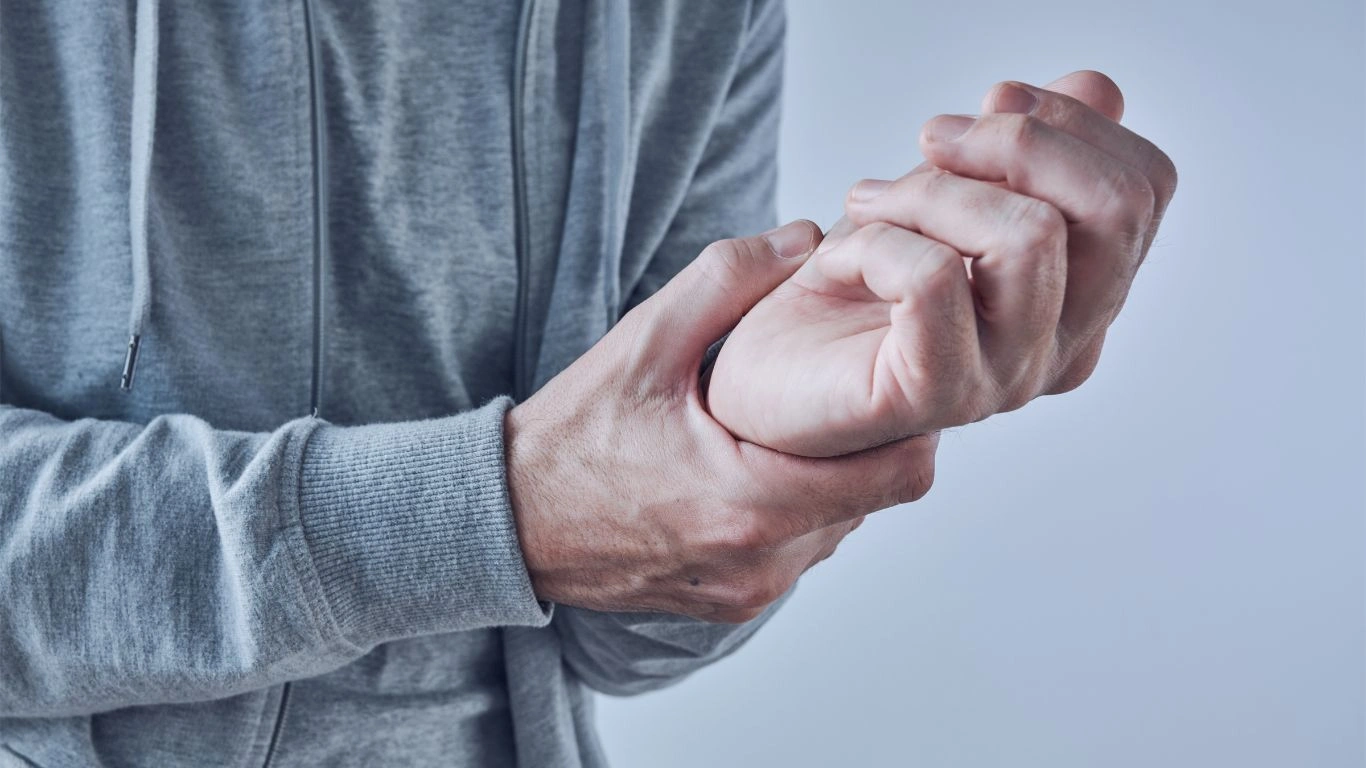
The Role of Stress Management in RA
You may not realize it, but stress can have a major impact on rheumatoid arthritis. Stress activates the body’s inflammatory response, which can lead to increased joint pain and stiffness, especially in the morning. So, managing stress effectively is another key element in reducing morning hand stiffness.
One way to manage stress is through relaxation techniques such as meditation, deep breathing, or progressive muscle relaxation. These practices can help reduce the overall inflammation in your body and promote a sense of calm. Regular mindfulness exercises can also improve your mental outlook, which can positively affect how you deal with the physical challenges of RA.
Exercise and Stress Relief: A Two-in-One Solution
Exercise is not only good for your body but also for your mind. Regular physical activity, such as yoga, walking, or swimming, can help lower stress levels, improve joint function, and reduce stiffness. Yoga, in particular, has been shown to help people with RA by combining gentle movement with breathing exercises, which can be incredibly beneficial for both physical and emotional well-being.
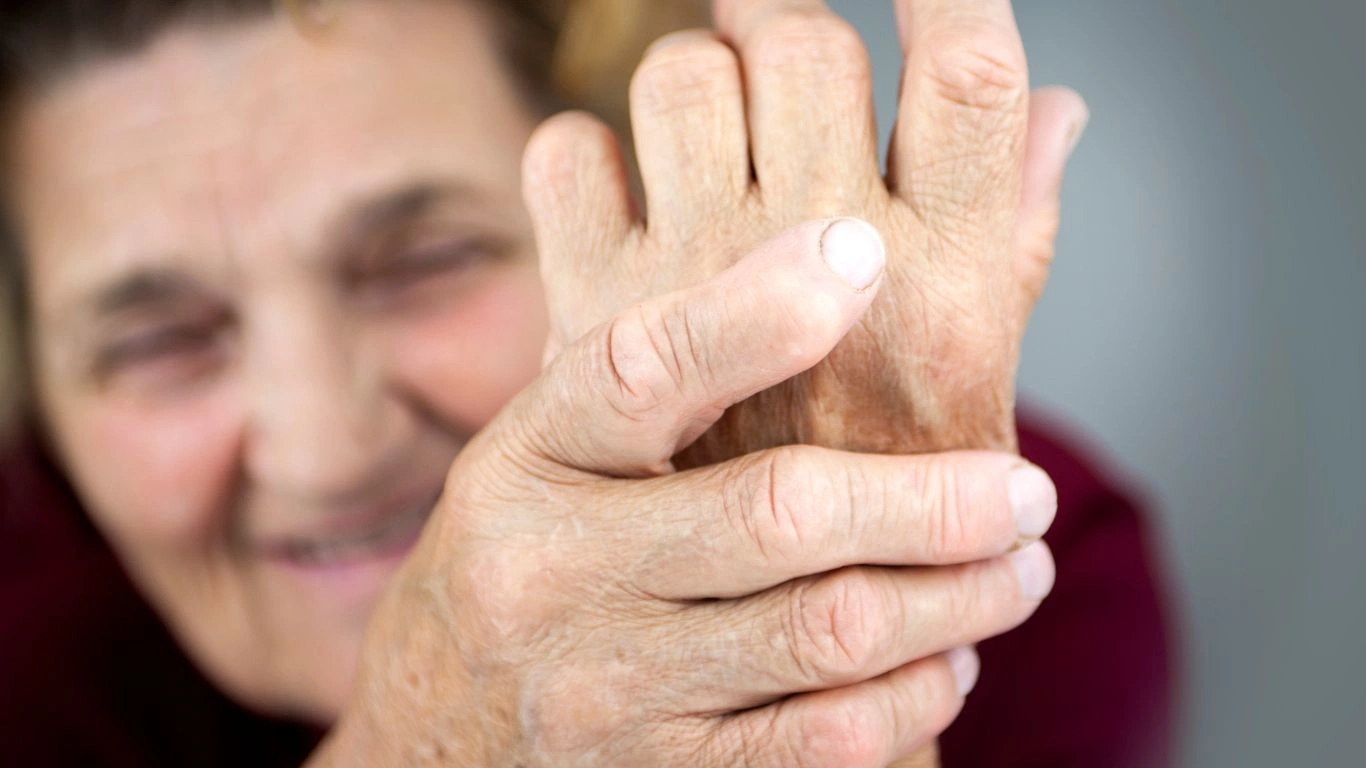
Home Remedies and Lifestyle Tweaks for Long-Term Relief
Over the years, I’ve learned that it’s not always the big changes that make the biggest impact—it’s often the little day-to-day habits that really help reduce morning hand stiffness in rheumatoid arthritis. While medications and therapies are essential, integrating some simple home remedies and lifestyle tweaks can offer meaningful, long-term relief. These are the types of tips I always share with my patients because I’ve seen them work firsthand.
Establish a Consistent Sleep Routine
One of the simplest but most underrated ways to manage RA symptoms is by getting consistent, restorative sleep. It sounds basic, but your body does a lot of repair work while you’re resting. Going to bed and waking up at the same time each day can help regulate your internal clock, which in turn helps control inflammation levels. I’ve personally noticed that when my patients improve their sleep hygiene, their morning stiffness often becomes more manageable.
Here are a few habits that can make a big difference:
- Keep your bedroom cool, dark, and quiet
- Avoid caffeine and heavy meals late at night
- Limit screen time an hour before bed
- Use weighted blankets or ergonomic pillows to ease joint pressure
Gentle Evening Activities
Believe it or not, what you do before bed can set the tone for how your hands feel in the morning. Light movement in the evening—like a short walk, warm hand stretches, or even a soak in a warm Epsom salt bath—can help calm inflammation and relax tense joints. I always encourage people to end the day with something that soothes the body and mind. One of my patients even swears by knitting before bed (gently, of course!) to keep her fingers mobile and warm.

Hydration and Anti-Inflammatory Drinks
Another low-effort habit with high payoff? Drinking enough water. Dehydration can make inflammation worse, and staying hydrated helps lubricate your joints from the inside out. I also recommend adding anti-inflammatory teas into your evening routine—think turmeric tea, ginger tea, or green tea. Not only are they calming, but they contain compounds that help reduce inflammation naturally.
Assistive Tools to Support Your Hands
If morning hand stiffness is putting a damper on your daily activities, don’t hesitate to lean into tools that can help. We’re lucky to live in a time where there are so many gadgets and devices designed specifically for people with rheumatoid arthritis. From jar openers to ergonomic kitchen utensils to button hooks, these simple tools can make a huge difference.
Compression Gloves
Compression gloves have become a favorite among many of my RA patients. They’re designed to provide light pressure and warmth to your hands, improving circulation and reducing swelling. I usually recommend wearing them overnight, but some people like using them during the day while doing light tasks. The key is finding a pair that’s snug but not too tight—you don’t want to cut off circulation.
Voice-to-Text and Smart Tech
Technology has come a long way, and it can be a big help when hand mobility is limited. Voice-to-text software is great for texting, emailing, or even journaling without putting strain on your hands. Smart home gadgets, like voice-controlled lights or smart plugs, can make everyday tasks a little easier when your joints are acting up.

Knowing When to Reach Out for Help
This is a big one—so many people try to tough it out, thinking morning stiffness is just “part of getting older” or “something to live with.” But rheumatoid arthritis is not something you have to suffer through alone. If your stiffness lasts longer than an hour in the mornings or is getting progressively worse, it’s time to talk to a healthcare provider. I can’t stress this enough: early intervention makes a huge difference in preventing long-term joint damage.
Whether it’s checking in with a rheumatologist, scheduling a visit with an occupational therapist, or even just asking your primary care provider for a referral—taking that first step can change everything. I’ve seen patients go from struggling to button a shirt in the morning to regaining full function with the right treatment plan.
Tracking Your Symptoms
Another pro tip: Keep a journal or use a symptom tracking app. Write down when your stiffness is worst, what you did the day before, how long it lasts, and any other symptoms that show up. Bringing this data to your doctor can help them tailor a treatment plan that truly fits your lifestyle and needs.
Final Thoughts on Rheumatoid Arthritis and How to Reduce Morning Hand Stiffness
If you take away one thing from this article, let it be this: you have more power over your rheumatoid arthritis than you might think. With the right mix of medication, gentle movement, proper sleep, stress management, and the occasional helping hand from assistive tools or therapy, you can make mornings a lot more manageable. I’ve seen it happen time and time again in my practice, and there’s no reason you can’t experience that progress too.
Living with RA can be a challenge, but it doesn’t have to define your day—or your mornings. Take it one step at a time, try out the strategies that feel right for you, and don’t hesitate to reach out for support when you need it. You’ve got this!
References
Disclaimer
This article is for informational purposes only and is not intended to substitute professional medical advice, diagnosis, or treatment. Always seek the advice of your healthcare provider with any questions you may have regarding your medical condition.

Tarra Nugroho is a dedicated Nurse Practitioner with a strong foundation in family and preventive care. She brings both compassion and clinical expertise to her practice, focusing on patient-centered care and health education. As a contributor to Healthusias.com, Tarra translates medical knowledge into clear, empowering articles on topics like women’s health, chronic disease management, and lifestyle medicine. Her mission is simple: help people feel seen, heard, and informed—both in the clinic and through the content she creates. When she’s not caring for patients, Tarra enjoys weekend hikes, plant-based cooking, and curling up with a good health podcast.

